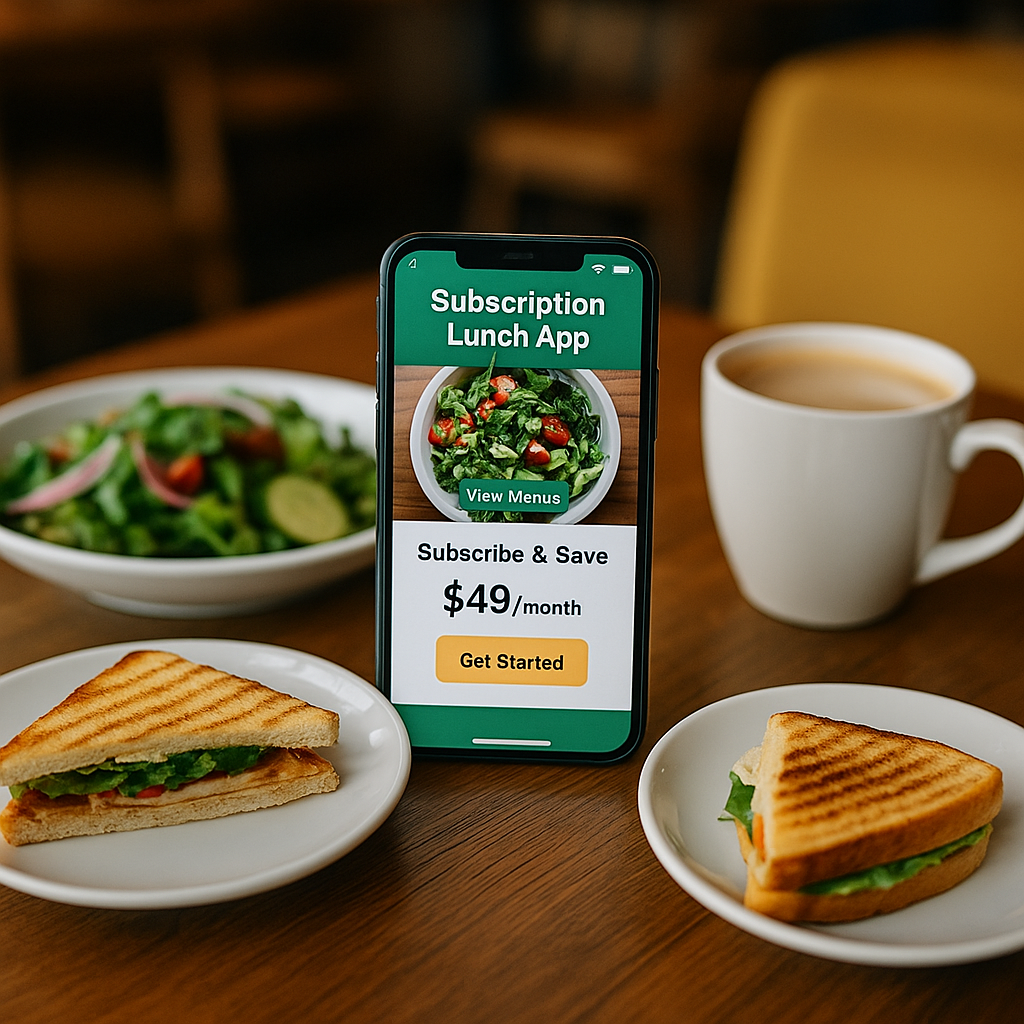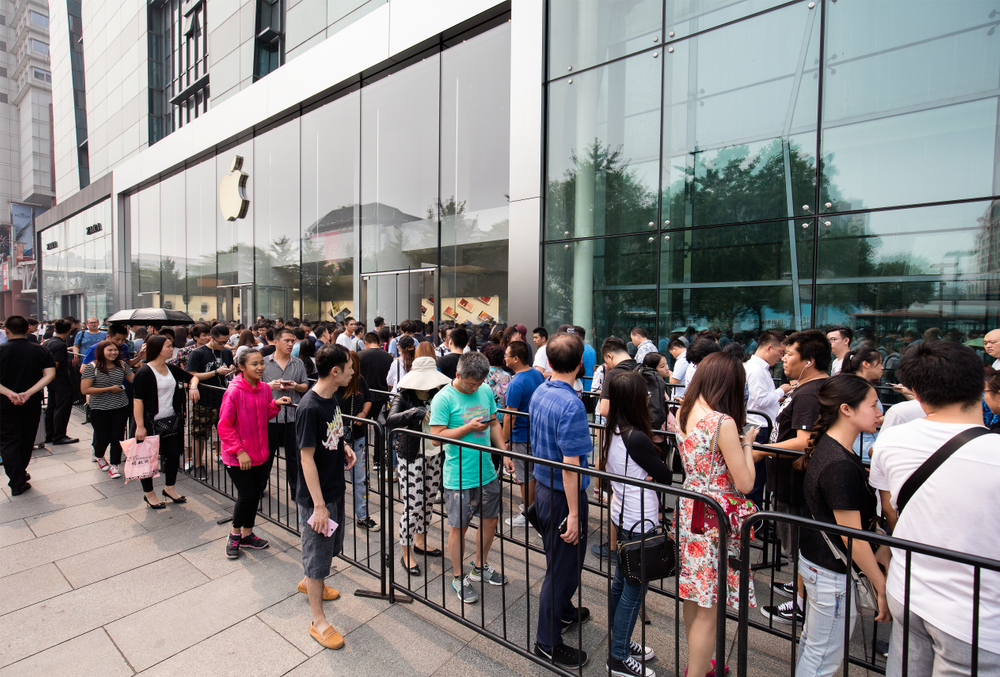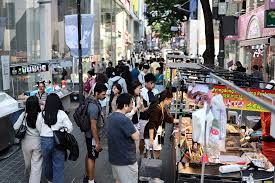| 최초 작성일 : 2025-09-09 | 수정일 : 2025-09-09 | 조회수 : 31 |

“Korean Cafés Embrace Subscription Meals for Office Workers” — The Korea Herald, Aug. 28, 2025 “Subscription Economy Expands Beyond Streaming to Dining Culture” — Financial Times, Aug. 22, 2025 “MZ Generation Drives Growth of Café Lunch Subscriptions” — JoongAng Ilbo, Sept. 2, 2025 ------------------------ In South Korea, cafés are more than just places to grab coffee—they are social hubs, creative spaces, and increasingly, providers of daily sustenance. Recently, the rise of café subscription meal services has caught the attention of both local and global media. For a fixed monthly fee, subscribers receive daily or weekly meal sets, snacks, or drinks, integrating affordability and convenience with lifestyle choices. The popularity of these services reflects broader trends in the subscription economy. Just as Spotify and Netflix transformed how people access music and video, Korean cafés are pioneering a model that applies the same logic to dining. What makes this trend especially notable is its cultural context: Korea’s highly competitive urban work culture, combined with its rich café ecosystem, has provided fertile ground for subscription-based meals to thrive. The Financial Times has even described Korea as a “test lab” for the global dining industry. This shift signals something deeper than convenience. It illustrates how consumers—especially the MZ generation—are reframing consumption not only as a means of survival but also as a lifestyle identity.
To understand café subscription meal services, multiple academic theories provide valuable lenses: Subscription Economy Theory explains the shift from ownership to access, emphasizing predictable revenue for businesses and reduced cognitive load for consumers. Cafés leverage this by offering stability—meals are guaranteed, payments are simplified, and loyalty is secured. Symbolic Consumption Theory highlights how choices signal identity. Subscribing to a trendy café chain becomes a way for young professionals to display modern, health-conscious, and eco-friendly lifestyles. Rational Choice and Behavioral Economics suggest that consumers weigh cost, time, and psychological relief. Even if subscription meals are not always the cheapest option, the certainty of value and reduced daily decision-making drives adoption. Experience Economy Theory frames the subscription not just as a transaction but as an ongoing experience. Subscribers gain more than food—they enjoy the comfort of routine, a sense of belonging, and curated lifestyle experiences. Platform Economy and Network Effects explain how cafés build ecosystems through mobile apps, loyalty points, and data-driven personalization. As more users join, services improve, creating a reinforcing cycle of adoption. Social Capital Theory emphasizes how subscriptions foster community. Shared lunch services can strengthen workplace culture or create informal networks among regulars. Risk Society Theory (Ulrich Beck) situates subscription meals as a strategy to manage uncertainties—rising food costs, time scarcity, or dietary health concerns. Subscriptions externalize these risks to the café system, providing consumers with stability in uncertain environments. Together, these theories show that café subscription services are not trivial marketing ploys but complex phenomena at the intersection of economics, culture, and risk management.
Recent reports from The Korea Herald and JoongAng Ilbo highlight the rapid adoption of café subscriptions among office workers. In Seoul’s bustling business districts, lunchtime queues are being replaced by app-based check-ins. Employees subscribe to a plan, scan their QR code, and receive a fresh meal—often a salad, sandwich, or rice bowl—without the stress of daily menu decisions. From the perspective of subscription economy theory, this reflects a shift toward predictable, recurring revenue streams for cafés. Unlike traditional one-time purchases, subscriptions ensure steady cash flow and customer loyalty, even during seasonal fluctuations. For consumers, the appeal lies in convenience and cost control, reducing the “decision fatigue” of urban life. Symbolic consumption is equally evident. Social media posts tagged with #구독런치 (#SubscriptionLunch) show young professionals proudly displaying their meals, not only for taste but as markers of belonging to a modern, efficient, and health-conscious lifestyle. Much like branded coffee cups once symbolized status, subscription meals are becoming new cultural icons. Behavioral economics sheds light on why even higher-priced subscriptions succeed. Consumers tend to avoid “losses” more than they seek equivalent “gains.” By prepaying, they secure mental relief from price variability and the anxiety of choice, turning the subscription into a psychological safety net. The experience economy lens further explains why these services resonate. Cafés craft atmospheres—through interior design, music, and personalized greetings—that transform lunch breaks into lifestyle experiences. Subscriptions, therefore, extend beyond calories: they offer predictability, identity, and a sense of curated living. On the business side, platform and network effects play a pivotal role. Apps track preferences, recommend healthier options, and reward loyalty with gamified badges. As user bases expand, cafés gain leverage to negotiate with suppliers, optimize supply chains, and reduce waste. This efficiency benefits both business sustainability and consumer affordability. International comparisons reinforce Korea’s pioneering role. In Japan, Piccoma’s café-linked campaigns have begun experimenting with lunch passes, but adoption remains limited. In the U.S., “subscription dining clubs” exist but often target niche, upscale audiences. Korea’s integration of café culture, digital platforms, and mass affordability makes its model distinctive and potentially exportable. Yet, risks remain. Critics warn of subscription fatigue, where consumers juggling multiple services (music, video, fitness, and now food) may eventually cancel. Others worry about inequality: while white-collar workers enjoy convenient meals, irregular workers or small independent cafés may be excluded from the benefits.
한국의 출산율 증가와 관련된 최근 발표는 단순히 숫자상의 변화에 그치지 않고, 여러 가지 중요한 사회적, 경제적 함의를 지니고 있습니다. 출산율 증가가 이루어질 경우, 인구 구조의 변화로 인해 노동 시장의 활성화와 소비 시장의 확대가 예상됩니다. 이는 결국 국내 경제에 긍정적인 영향을 미칠 것으로 보입니다. 따라서 정부와 관련 기관은 이러한 변화를 잘 활용하여 미래 세대에게 보다 나은 환경을 제공할 수 있는 정책 방향을 모색해야 합니다. 첫째, 출산율 증가를 지속적으로 두고 바라볼 때, 가정의 양육 지원 시스템을 더욱 강화하는 것이 필요합니다. 현재 일본 기업인 후지쓰(Fujitsu)와 같은 외국 기업들도 출산과 양육에 대한 지원을 확대하고 있는 상황입니다. 이를 참고하여 한국에서도 직장 내 육아휴직 제도 강화와 함께 경제적 지원을 확대하는 정책을 시행해야 합니다. 이를 통해 일과 가정을 양립할 수 있는 환경을 조성하면 출산 장려 및 양육에 대한 부담을 덜 수 있을 것입니다. 둘째, 교육 및 육아에 대한 인식 개선이 필요합니다. 많은 가정에서 자녀 양육에 대한 부담감이 크기 때문에, 이를 해소하기 위한 다양한 프로그램이 시행되어야 합니다. 이는 예를 들어, 프랑스처럼 육아 지원 센터를 통한 육아 교육 프로그램 제공이 될 수 있습니다. 이러한 프로그램을 통해 부모들이 자녀 양육에 대한 자신감을 얻고, 다양한 육아 방법을 배울 수 있는 기회를 제공해야 합니다. 셋째, 지역 사회 차원에서도 협력이 필수적입니다. 출산율 증가는 단순히 가정의 문제를 넘어 지역 사회 전반에 영향을 미치는 문제입니다. 따라서 지역 커뮤니티 내에서 부모와 자녀가 함께 참여할 수 있는 다양한 문화 및 체험 프로그램이 필요합니다. 이러한 프로그램은 가정의 경제적 부담을 줄이고, 자녀 양육에 대한 공동체의 연대감을 강화할 수 있도록 도와줄 것입니다. 마지막으로, 장기적인 관점에서 인구 통계 데이터를 활용한 정책적 접근도 중요합니다. 현재의 출산율 증가가 일시적인 현상인지, 지속될 것인지를 판단하기 위해서는 지속적인 모니터링과 연구가 필요합니다. 한국의 통계청(KOSIS)와 같은 기관이 이러한 데이터를 수집 및 분석하여 관련 정책을 제안할 수 있도록 지원해 주는 것이 필수적입니다. 이를 통해 미래의 인구 전망을 보다 정확히 예측하고, 이에 맞춘 정책들을 사전에 마련할 수 있어야 합니다. 이와 같은 여러 가지 방향으로의 접근은 한국의 출산율 개선을 위한 실질적이고 효과적인 해결책이 될 것입니다. 성공적인 정책 적용과 실행을 통해 모든 세대가 행복하게 살아가는 사회를 구축해야 합니다. وفي النهاية, 모든 주체가 협력하여 지속 가능한 발전을 이룰 수 있도록 목표를 세워야 할 것입니다.
Café subscription meal services are more than a passing trend. They symbolize how consumption, technology, and culture intertwine in modern societies. In Korea, where cafés have long been more than beverage outlets, this new model represents a natural evolution: from coffee as a daily ritual to meals as part of a broader lifestyle platform. Ultimately, the café subscription reflects a deeper human desire—to simplify choices, manage risks, and connect identity with daily habits. For the MZ generation, these services embody efficiency and self-expression. For businesses, they promise stability and growth. And for society, they raise questions about inclusivity, sustainability, and the future of shared spaces. In that sense, the rise of café subscriptions is not only about food. It is about how a society negotiates convenience, identity, and well-being in an era defined by the subscription economy.













